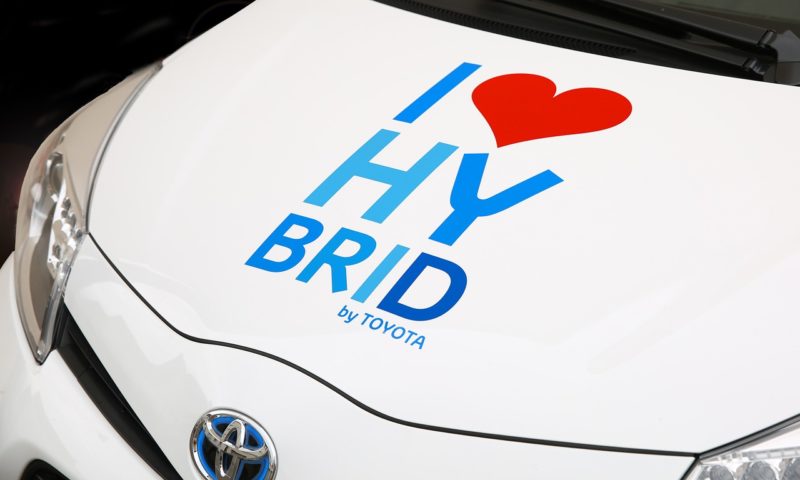What Are the Advantages and Disadvantages of Hybrid Cars

In the realm of modern transportation, hybrid cars stand as a testament to technological innovation, offering a blend of gasoline-powered engines and electric motors. This fusion of technologies gives rise to a vehicle with the potential to revolutionize fuel efficiency and environmental impact.
Understanding the advantages and disadvantages of hybrid cars becomes crucial in navigating the landscape of sustainable transportation solutions. Let’s embark on a journey to uncover the multifaceted nature of these automobiles, dissecting their benefits and drawbacks to gain a comprehensive view of their role in shaping our driving experiences and environmental footprint.
What is a Hybrid Car?
At their core, hybrid cars combine the utilization of two distinct power sources: an internal combustion engine, typically gasoline-powered, and an electric motor powered by a battery. This unique combination allows these vehicles to operate using either or both of these power sources, depending on driving conditions and energy requirements.
The gasoline engine in a hybrid functions much like those in conventional cars, powering the vehicle by burning fuel. However, what sets hybrids apart is the integration of an electric motor and a battery pack. This electric motor operates independently or in conjunction with the gasoline engine, providing supplementary power or functioning solely on electric power for short distances, typically at lower speeds.
Moreover, hybrid cars utilize a technology known as regenerative braking. This system captures and stores energy that would otherwise be lost during braking, converting it into electricity to recharge the battery. This innovative feature enhances efficiency and extends the driving range of the vehicle.
The operation of a hybrid car is managed by sophisticated onboard computers that determine the optimal use of the gasoline engine and electric motor. Depending on driving conditions, these systems seamlessly transition between power sources to maximize fuel efficiency and performance while minimizing emissions.
Advantages of Hybrid Cars
1. Enhanced Fuel Efficiency
Hybrid cars excel in their ability to significantly improve fuel efficiency compared to traditional gasoline-powered vehicles. The integration of an electric motor alongside the internal combustion engine allows hybrids to optimize energy usage. During low-speed or stop-and-go driving, the electric motor takes over, reducing reliance on the gasoline engine and conserving fuel.
This dual power system enables hybrids to achieve remarkable mileage by seamlessly switching between the gasoline engine and the electric motor based on driving conditions. Additionally, the technology of regenerative braking further contributes to their efficiency.
The result is a vehicle that consumes less fuel, reducing trips to the gas station and cutting down on fuel costs. This advantage not only benefits the owner’s wallet but also contributes positively to the environment by decreasing carbon emissions and reducing the overall carbon footprint of the vehicle.
2. Environmental Friendliness
Hybrid cars are renowned for their environmentally conscious design and reduced carbon footprint. Their operation relies not only on a gasoline engine but also on an electric motor powered by a battery. This synergy results in lower overall fuel consumption and consequently reduces the emission of greenhouse gases and pollutants into the atmosphere.
By integrating an electric motor into the powertrain, hybrids can operate in electric mode at lower speeds and for short distances. During these instances, they produce zero tailpipe emissions, promoting cleaner air quality in urban settings and densely populated areas. Even when running on gasoline, hybrids typically produce fewer emissions than conventional vehicles due to their enhanced fuel efficiency.
3. Regenerative Braking
One of the innovative features setting hybrid cars apart is their utilization of regenerative braking technology. Traditional vehicles dissipate kinetic energy as heat during braking, essentially wasting that energy. However, hybrids employ regenerative braking systems that capture this energy and convert it into electricity, which is then stored in the battery for later use.
When a driver applies the brakes in a hybrid car, the electric motor operates in reverse, functioning as a generator to convert the kinetic energy back into electrical energy. This process helps recharge the battery, improving overall efficiency and extending the driving range of the vehicle. Consequently, hybrids not only reduce wear on the braking system but also enhance their fuel efficiency by recycling energy that would otherwise go to waste.
4. Quiet Operation
Hybrid cars are renowned for their remarkably quiet operation, especially when running on electric power. At lower speeds, when the electric motor is engaged, these vehicles operate almost silently. This stands in stark contrast to traditional gasoline-powered cars, which produce noticeable engine noise during operation.
The quietness of hybrid cars not only enhances the driving experience by reducing noise pollution for passengers but also contributes to a serene environment in urban settings. In bustling cityscapes where traffic noise can be overwhelming, the near-silent operation of hybrids offers a more peaceful commute for both drivers and pedestrians alike.
5. Government Incentives
Owning a hybrid car often comes with additional perks and incentives provided by governmental bodies and local authorities. Many regions around the world offer various incentives to encourage the adoption of eco-friendly vehicles like hybrids. These incentives may include tax credits, rebates, reduced registration fees, or exemptions from certain taxes or tolls.
Governments incentivize the purchase and use of hybrid cars as part of their efforts to promote sustainable transportation and reduce greenhouse gas emissions. These incentives serve as a way to offset the initial higher cost of purchasing a hybrid vehicle and make them more financially appealing to consumers. They not only benefit individual car owners by reducing the overall cost of ownership but also contribute to the larger goal of environmental conservation by encouraging the use of cleaner, more fuel-efficient vehicles.
The availability and nature of these incentives may vary depending on the region and are often subject to change. However, they play a crucial role in making hybrid cars more accessible and attractive to potential buyers, driving the shift towards more environmentally friendly transportation options.
Disadvantages of Hybrid Cars
1. Higher Upfront Cost
One of the primary drawbacks of hybrid cars is their higher initial purchase price compared to conventional gasoline-powered vehicles. The technology behind hybrids, including the integration of an electric motor, sophisticated battery systems, and specialized engineering, contributes to their elevated manufacturing costs.
This higher upfront cost can be a deterrent for some consumers, especially when considering the initial investment required to purchase a hybrid vehicle. While the long-term savings on fuel costs might offset this expense, the initial higher price tag can pose a significant barrier for those looking for more budget-friendly options when purchasing a vehicle.
However, it’s important to note that advancements in technology and increased production of hybrid cars are gradually reducing the price gap between hybrids and traditional vehicles. As the demand for eco-friendly transportation grows and technology becomes more widespread, the cost difference between hybrid and conventional cars is expected to continue decreasing over time.
2. Battery Issues and Replacement Costs
The battery packs used in hybrid cars are essential components that store and supply energy to the electric motor. While these batteries are designed to be durable and long-lasting, they do have a limited lifespan. Over time and usage, the performance and capacity of these batteries can degrade, impacting the overall efficiency and range of the vehicle.
Replacing the battery pack in a hybrid car can be a significant expense. The cost of a new battery pack can vary depending on the make and model of the vehicle, but it often represents a substantial portion of the vehicle’s overall value. This expense can arise after several years of ownership, potentially impacting the cost-effectiveness of owning a hybrid, especially if the battery replacement occurs after the warranty period.
Additionally, the disposal of these batteries poses environmental concerns due to their components, which can be harmful if not properly handled or recycled. While efforts are underway to improve battery technology, extend their lifespan, and develop more sustainable recycling methods, the issue of battery replacement cost and environmental impact remains a notable drawback for hybrid car owners.
3. Less Power and Performance
While hybrid cars excel in fuel efficiency and environmental friendliness, they often lag behind in terms of raw power and performance compared to some traditional gasoline-powered vehicles. This disparity in power primarily stems from the design focus of hybrids on maximizing fuel economy rather than sheer performance.
The electric motors in hybrids, although efficient for low-speed and city driving, might not provide the same level of instantaneous power or acceleration as larger, high-performance gasoline engines. As a result, in situations requiring high-speed acceleration or towing heavy loads, hybrid cars may not deliver the same level of performance as some conventional vehicles.
However, it’s worth noting that advancements in hybrid technology have led to improvements in performance, and newer hybrid models are closing the gap in terms of power and acceleration. Many hybrid manufacturers are actively working on hybrid powertrains that offer both efficiency and impressive performance, aiming to provide a more balanced driving experience.
4. Limited Electric Range
For plug-in hybrid vehicles, which can operate in full-electric mode for a certain distance before switching to gasoline power, there is a limitation on their electric-only range. Once the battery charge depletes, these plug-in hybrids rely more on their gasoline engines, functioning similarly to regular hybrids.
The electric-only range of plug-in hybrids varies among models but typically covers shorter distances compared to fully electric vehicles. This limitation might pose challenges for those seeking longer electric-only commutes without relying on gasoline. Additionally, recharging these batteries might require access to charging stations or dedicated charging infrastructure, which might not be as widespread or easily accessible compared to gasoline stations.
While plug-in hybrids offer the advantage of running on electric power for shorter trips and reducing reliance on gasoline, their limited electric range might not fully align with the preferences or needs of drivers aiming for extended all-electric driving capabilities.
5. Maintenance Complexity and Costs
Hybrid vehicles, due to their dual power sources (gasoline engine and electric motor) and advanced technology, can be more complex to maintain compared to traditional gasoline-powered cars. The inclusion of specialized components, such as the battery pack, electric motor, and sophisticated control systems, adds complexity to their maintenance and repair processes.
Servicing hybrid cars often requires specialized training and equipment, which might not be readily available at all repair shops. This specialization can limit the options for where owners can get their hybrid vehicles serviced, potentially leading to higher maintenance costs due to the need for specialized expertise and parts.
Additionally, while hybrid cars are known for their reliability, if issues arise with the electric components or battery systems, repairs or replacements can be more expensive than traditional engine repairs. These potential higher maintenance costs can offset some of the savings gained from improved fuel efficiency and might be a consideration for prospective hybrid car buyers.
Conclusion
Hybrid cars present a compelling blend of advantages and disadvantages, shaping the landscape of eco-friendly transportation. The advantages of hybrid cars, including improved fuel efficiency, reduced emissions, regenerative braking, incentives, and quiet operation, highlight their environmental consciousness. However, disadvantages like the higher upfront cost, potential battery expenses, performance limitations, electric range constraints, and maintenance complexities require careful consideration.
As technology progresses, hybrid cars evolve, promising enhanced performance and broader capabilities. The balance between their advantages and disadvantages emphasizes the importance of informed decisions aligned with individual preferences and the ever-evolving landscape of sustainable mobility.
Would you like to receive similar articles by email?





